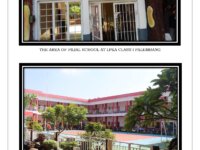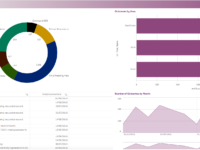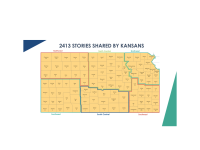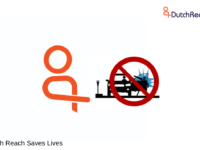IPGAIN (Intellectual Property Global Artificial Intelligence Network), created by IP Australia, is a worldfirst marketplace providing global access to pioneering artificial intelligence (AI) and machine learning (ML) tools. IPGAIN is like an app store, sharing ground breaking technology that solves challenges unique to the IP community. This initiative is driving collaboration and reducing duplication between national IP offices, to improve quality and consistency across the global IP community.
Innovation Tag: Cross-Sector Partnerships
Work 2.0 Lab is a new collaborative working and learning environment. It is available to all agencies and civil servants in government and other organisations involved in the 2-years experiment. The purpose is to promote better, higher quality ideas, solutions and decisions on cross-cutting matters outlined for example in the government program. Work 2.0 Lab provides the structures and platforms (environments, spaces, networks, methods) for collaborative learning needed to work together.
Insight Bristol is an interagency analytics hub between Bristol City Council and Avon and Somerset Police. Its core creation is a database of families' risk and vulnerability indicators, together with targeted risk modelling, which has been embedded into operational practice. This has created a fundamental shift in public sector working by developing a proactive approach to early intervention, saving millions of pounds of public money and improving outcomes for children and families.
New products and new ways of working are needed in order to meet the future challenges in healthcare.
The ability of healthcare professionals to create and innovate new products and working methods is however underutilized. Närhälsan Färgelanda, Primary Health Care Centre, has launched an innovation project in collaboration with private companies that aims at empowering healthcare professionals to create, innovate and develop new products and working methods that meet the future needs.
Case Study
Using behavioural insights to increase patient engagement with validation of hospital waiting lists
Administrative validation of waiting list is where patients are contacted by hospitals in writing to confirm if they still require hospital care or wish to be removed from a waiting list. Many patients do not reply to validation letters. This innovation involved a collaborative redesign of the validation letter, the application of a range of behavioural insights to letter design and testing through a randomised control trial.
The State of Kansas piloted ‘Our Tomorrows,’ a novel framework to capture family experiences about thriving and surviving, to ensure that policies and practices meet the needs of families. The approach makes a large amount of data (over 2,500 narratives) directly accessible to decision-makers and the individuals who provided it. Communities make sense of patterns that emerge from stories to create a portfolio of small actions that will make Kansas the best place to raise a child.
Case Study
SELFI (JUVENILE FILIAL SCHOOL / FORMAL EDUCATION SERVICES AT SPECIAL CLASS DEVELOPMENT INSTITUTION…

Sekolah Filial (SELFI) is a high quality formal education service for child prisoners in a special child development institution, Lembaga Pembinaan Khusus Anak (LPKA) Klas I in Palembang. This innovation is a solution to provide educational rights for all, including child prisoners in Palembang. This was a major problem in Palembang because of the high number (191) of cases reached in 2014, far above the national average of 95 cases. This innovation has been able to lead them to a better future.
Dutch Reach Project (DRP) closes a serious gap in existing road safety efforts to prevent “dooring,” a common, feared & at times fatal crash caused when exiting motorists - using their near hand - suddenly throw open their car door into the path of a bicyclist or other vulnerable road user (VRU).
To prevent dooring, DRP promotes the Dutch Reach (DR): reaching across to the door with the far hand to open - a much safer method.
The DR project is already gaining increasing attention and being…
The project was inspired by the need to promote coding in Greek primary education. It fostered the exploration of the actual use of digital technologies in the Schools, the way new technologies could transform School classrooms into real labs and the level of impact in the improvement of the digital skills of teachers and pupils.
The Internet is a great communication tool. People use it all the time both at work and for leisure, but what about interacting with the government? Even though most of the Portuguese public services are digital, its use was below expectations. The answer was the creation of a network of Citizen Spots, which are multiservice physical counters where a “specialized mediator” assists citizens accessing online public services and teaches them how to perform them autonomously thereafter.




